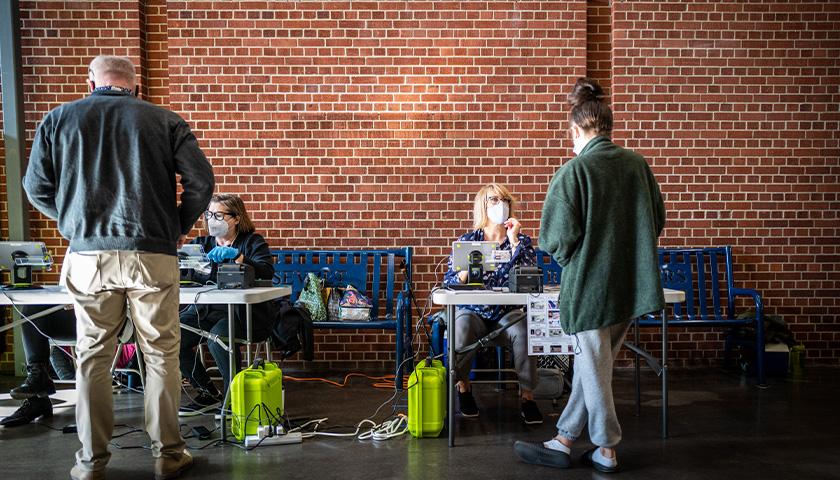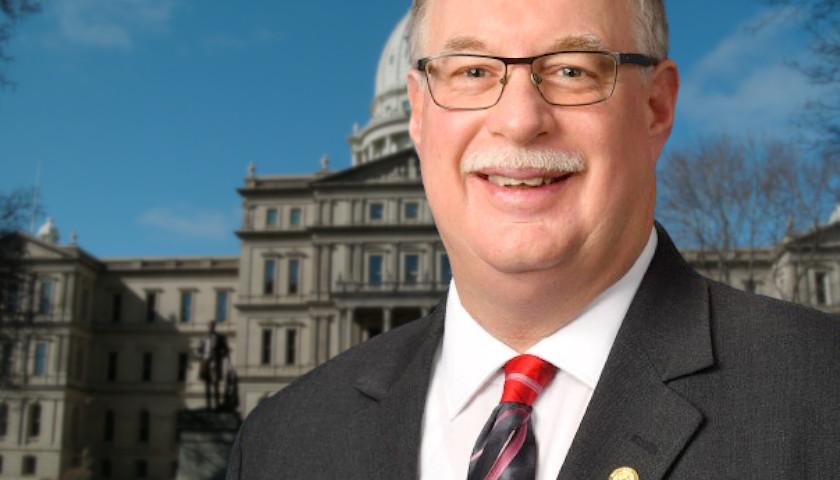by Scott McClallen
After Michigan agreed to spend $951 million of taxpayer money on two electric vehicles companies – Our Next Energy and Gotion Inc – the question remains: what do taxpayers get?
Politicians get election fodder, companies get money but taxpayers are left paying $951 million to create up to 4,460 jobs, or a per-job cost of $213,133. The deal is meant to last decades, with one tax break lasting 30 years.
Gov. Gretchen Whitmer says the spending will create thousands of jobs and keep Michigan a heavyweight in mobility.
“Michigan put the world on wheels and over the last few years, we have worked together to bring home transformational investments building on our legendary manufacturing heritage to grow our economy,” Whitmer said in a statement.
GOP challenger Tudor Dixon, however, opposes the $715 million subsidy given to Gotion, a subsidiary of a company based in China.
“Tudor has a problem with taxpayer money being spent to support companies that, according to recent reports, have ties to the Chinese Communist party,” Dixon Communications Director Sara Broadwater told The Center Square. “The fact that Gretchen Whitmer is lining the pockets of foreign companies with Michigan taxpayer money is absurd. There are many better uses for hundreds of millions of dollars in taxpayer cash.”
Dixon didn’t comment on the $236 million subsidy given to Novi-based Our Next Energy.
Jason Hayes, director of environmental policy at the Mackinac Center for Public Policy, said that EVs should be able to compete against gas and diesel-powered vehicles without subsidies.
“Not only is this an ineffective use of taxpayer dollars, it’s yet another example of the government pushing electric vehicles on consumers,” Hayes said in a statement. “These vehicles should be able to meet consumer demand and compete without special favors.”
 Most Michiganders don’t drive EVs, and only about 20,000 EVs are registered statewide compared to 6.5 million vehicles with gas or diesel engines. The state and public-private partnerships are building charging networks but its unclear when or if the technology will win over consumers.
Most Michiganders don’t drive EVs, and only about 20,000 EVs are registered statewide compared to 6.5 million vehicles with gas or diesel engines. The state and public-private partnerships are building charging networks but its unclear when or if the technology will win over consumers.
State Rep. David LaGrand, D-Grand Rapids, welcomed the “transformative” spending.
“I think one of the things that is on everyone’s mind right now is: How is Michigan going to fare well in the next generation? To do that we have to be willing to invest in transformative projects…. We have to have the tools that allow us to bring big, transformative projects to Michigan,” LaGrand said in a statement.
Former House Appropriations Chair Thomas Albert, R-Lowell, resigned his committee position over the “reckless” $1 billion economic development spending plan before a likely recession.
On Thursday, Whitmer touted 30,000 announced, but not-yet-materialized auto jobs, during her term. However, Bureau of Labor Statistic data show nearly 82,000 jobs lost since she took office in 2019.
– – –
Scott McClallen is a staff writer covering Michigan and Minnesota for The Center Square. A graduate of Hillsdale College, his work has appeared on Forbes.com and FEE.org. Previously, he worked as a financial analyst at Pepsi.
Photo “Gretchen Whitmer” by Michigan.gov. Photo “Tudor Dixon” by Tudor Dixon. Background Photo “Electric Vehicle Charging” by Grand Canyon National Park. CC BY 2.0.








